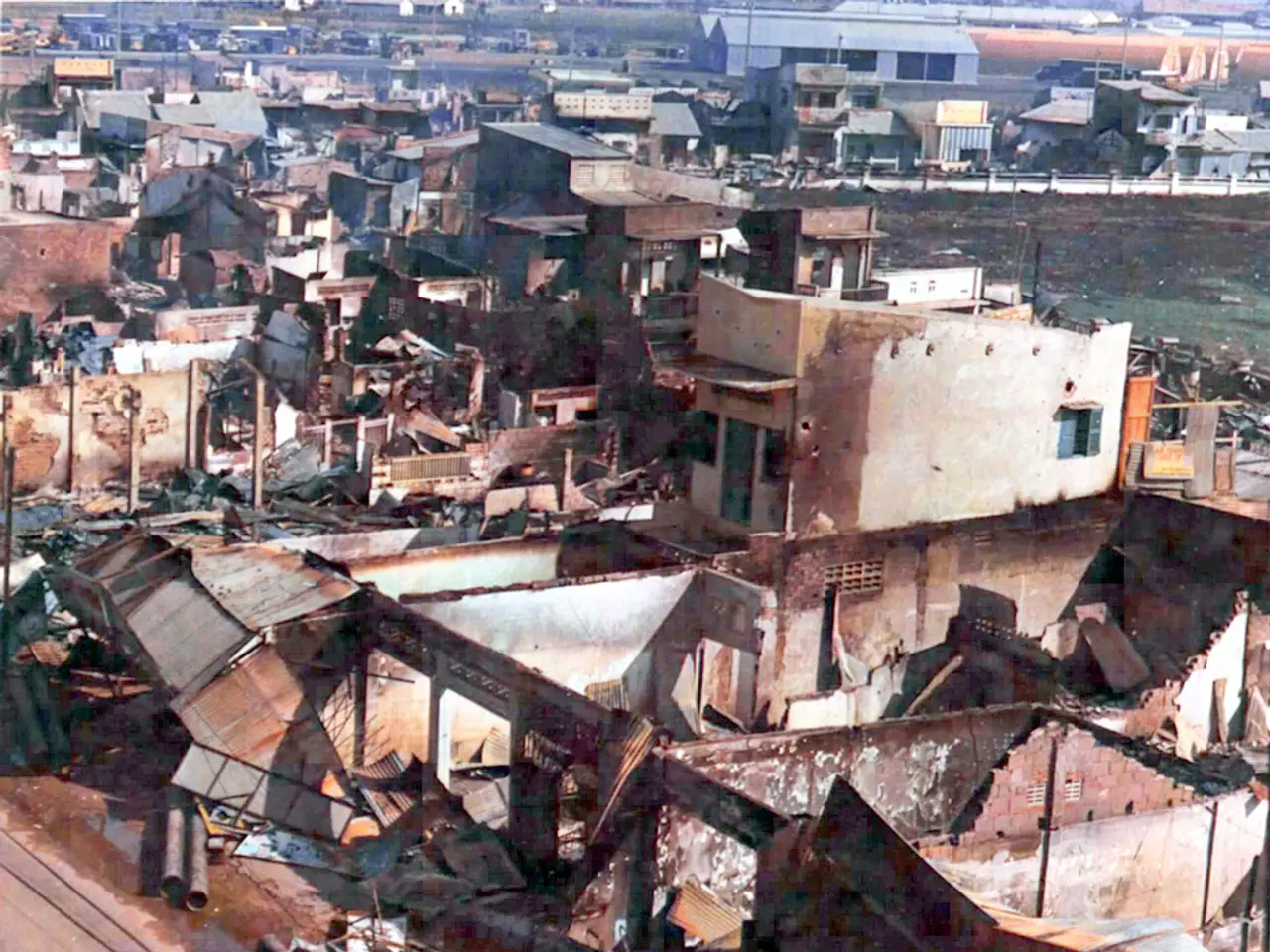Construction worker apprehended following Turkey's earthquake incident
In the wake of the devastating 7.8 magnitude earthquake that struck Turkey in 2023, claiming over 53,000 lives and causing extensive damage to hundreds of thousands of buildings in 11 provinces, the focus has shifted towards enhancing building safety and disaster resilience.
Istanbul, a city at high risk of major earthquakes, is not immune to this threat. The recent earthquake in Sindirgi, Balikesir, west of Turkey, serves as a stark reminder of the need for robust safety measures.
Current building safety regulations in earthquake-prone areas like Turkey emphasise strict enforcement of seismic building codes, retrofitting vulnerable structures, land-use planning, and emergency preparedness. These measures aim to prevent negligence and reduce earthquake risks.
In Turkey, seismic safety is governed by updated codes that mandate earthquake-resistant design and construction standards for new and existing buildings. This includes the enforcement of seismic safety building guidelines for critical infrastructure such as hospitals, schools, and housing, seismic retrofitting for older or poorly built structures, land-use planning to avoid construction on unstable soils and near active faults, and the implementation of early warning systems.
Moreover, Turkey pursues disaster resilience projects, such as the Istanbul Resilience Project, to boost emergency preparedness, response capacity, and infrastructure durability. The country also promotes professional collaboration and research in earthquake engineering, with conferences and institutions dedicated to advancing seismic safety technologies and practices.
However, the fear of additional collapses persists among residents, with at least 52 people injured in the aftermath of the earthquake. The high death toll from the 2023 earthquake was attributed to widespread use of substandard construction methods, insufficient supervision, and institutional failures.
The earthquake triggered the collapse of 16 structures, mostly abandoned houses, including an apartment building in Sindirgi. The owner and builder of the collapsed apartment building were detained for questioning on suspicion of "causing death and injury by negligence."
Many residents have been forced to spend the night outdoors and sleep in cars due to fear that their houses will collapse. The earthquake was felt as far away as Istanbul, a city with over 16 million inhabitants.
To date, over 200 aftershocks have been recorded in the region since Sunday's earthquake, with the strongest having a magnitude of 4.6. The aftershocks continue to occur, adding to the residents' anxiety.
Tragically, the earthquake also claimed lives in northern neighboring Syria, with over 6,000 people reported dead.
Despite these challenges, Turkey remains committed to reducing negligence by enforcing regulations, educating construction professionals, conducting retrofits, improving early warning and emergency response, and carefully managing urban development in sensitive zones. The goal is to create a safer future for its people.
Read also:
- Court petitions to reverse established decision on same-sex marriage legalization
- Commemoration of 200 Days of American Resurgence Unveiled
- Minister Bärbel Bas expresses doubts about her tenure as a minister following a recent interview during the summer.
- Politicians from both Republican and Democratic parties are urging President Trump to maintain the security agreement with Australia and the United Kingdom.








